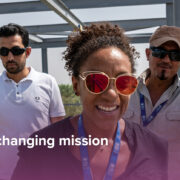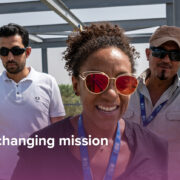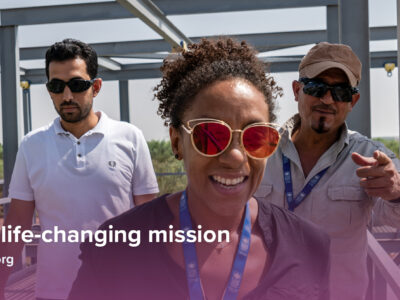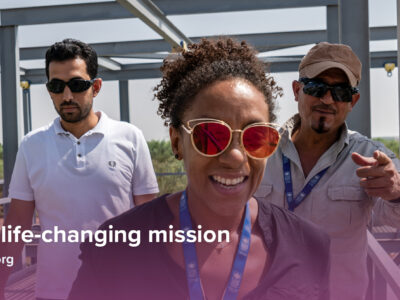
Undermined by decades of political crises and lack of governance, CAR has dramatically lost its capacity to exercise its essential functions, including control and protection of the territory, and to respond to the social demands and basic needs of the populations. In addition, there are feelings of abandonment and discrimination resulting from the serious structural problems, which particularly affect the regions mentioned above such as landlocked, low or none state presence, extreme shortage of basic social services and basic facilities (i.e. education, health, WASH), widespread poverty and lack of economic opportunities and infrastructures. All these factors are undermining the resilience of the communities and prevent opportunities for early recovery.
During a visit to CAR, UNSG Antonio Gutierrez has strongly reiterated that the international community continues to support the Government for the deployment of its capacities and forces countrywide progressively and wherever possible. He also recommended introducing, as much as possible, the nexus between emergency assistance and early recovery activities. Experience suggests that if the authorities and the civil society are included in decision processes, and if dialogue as well as trust with communities are reinforced, then the likelihood of reasserting local authority and governance is improved.
The recent clashes between main armed groups have generated new waves of population displacements and the security situation is deteriorating countrywide. The countrywide violence highly affects vulnerable groups, including the youth, which represents as much as 75% of CAR’s population[1]. During conflicts, youth can be involved as victims or perpetrators. In CAR, as most youth are unemployed, this has made them easy target to be recruited by armed groups. There is evidence that if opportunities are given to youth through cash-for-work and income generating activities (IGAs) development, they will become self-reliant, rebuild their lives within their communities and will therefore more likely consolidate peace rather than join armed groups.
The overall objective of this intervention is to improve the resilience of selected communities in Ouham Pende and region through a participatory approach that will gather local authorities, relevant line ministries and communities to rehabilitate community infrastructures and basic services. It is expected that the project will contribute to address the feeling of neglect among youth, a main driver of instability for communities.
The project will strengthen dialogue between local authorities and communities through the set-up of Local Committees (LC) to promote transparent and inclusive decision-making mechanisms. The project will pay a particular attention to youth-at-risk of recruitment by armed groups through the renewed Incomes Generating Activities (IGA) opportunities.
In achieving these deliverables, the project has two major expected outcomes:
Outcome 1: Reinforcement of governance of local government;
Outcome 2: Creation of short and long-term job opportunities through the CFW activities and enforcement of gender-sensitive vocational training and education for acquiring decent jobs.
The following output and activities are expected to be carried.
Outcome 1:
Output 1.1: Set up of representative Local Committees (LC) in all targeted communities completed
Indicators:
- Number of LC set up according to relevant SOPs
- Number and representation of community members and local authorities involved in the LC (gender and duty breakdown included)
- Number of local civil servants and LC who successfully participated in capacity building trainings and the selection and monitoring of project’s activities
- Number of community leaders selected by LC take part in ToT -Number of sensitized community members on mediation and conflict resolution
Output 1.2: Essential social services are restored through participative rehabilitations of critical infrastructures
Indicators:
- Number of community infrastructure rehabilitated
- Number of individuals benefitting from essential social services
Output 1.3: The socialization of beneficiaries and community members is reinforced
Indicator:
- Number of socio-cultural activities organized
Outcome 2
Output 2.1: Local market study of existing economic opportunities for IGAs carried out
Indicators:
- Market study of economic opportunities for IGAs completed
Output 2.2: Beneficiaries implement IGAs
Indicators:
- Number of participants enrolled in CfW
- Number of beneficiaries receiving basic business skills training
- Number of beneficiaries receiving vocational/skills training or on-the-job training
- Number of beneficiaries receiving kits for the set-up of IGAs
- Number of beneficiaries receiving tutoring support to the set-up of their IGAs
Output 2.3: Local capacity to prevent and response to SGBV is strengthen
Indicators:
- Number of individuals trained on SGBV prevention and response
- Number of ToT of peer educators on SGBV awareness and response
Output 2.4: The social cohesion, peaceful coexistence, use of community dialogue for settlement of intercommunal disputes and rejection of violence are strengthened
Indicators:
-Number of sensitization sessions carried out
-Number of radio spots and sketches
While the preliminary activities of these projects are being implemented, there is a need to conduct the baseline assessment against the project specified indicators. The baseline assessment will be carried out to have a comprehensive understanding of the existing parameters against those specified in the project document in order to compare and measure the impact and additional resources the projects have added to the communities. The baseline assessment must contribute to determining the existing resources in the intervention zones to allow the implementation team to rationalize project resources across selected communities. The baseline assessment results are intended to inform IOM and relevant stakeholders about the level of needed intervention and to enable evidence-based requirements and adjustments of activities specified in the project documents. This will be done through the collection, analysis and reporting of relevant data. The activities will include but not limited to the following:
- Developing or adapting, testing and finalizing baseline questionnaires on the existence, status and usage of community infrastructures; economic opportunity for at-risk youths and existing conflict prevention and resolution mechanism, etc.
- Outline the process of the baseline assessment;
- Supervising and verifying baseline assessment data collection process in Ouham Pende;
- Conducting data verification and data entry exercises using appropriate software or other relevant statistical program for data analysis;
- Producing Baseline assessment report with comprehensive conclusions and recommendations that can be used to track and measure project’s progress;
- Producing separate assessment report for the project in Ouham Pende.
Under the general supervision of the Chief of Mission of IOM in the Central African Republic, and the direct supervision of the IOM CAR Programme Coordination Officer in Bangui, the Baseline Indicator Consultant will produce a comprehensive baseline indicator report for the projects.
The consultant will carry out the following tasks:
- Conduct desk review of all relevant Programme documentation: background, project implementation strategies and methodologies, context analysis and reference documentation on related Programmes in CAR (1 day).
- Prepare and submit a draft assessment Mission plan for review and approval by IOM Coordination Unit (2 days);
- Once the mission plan is approved, the consultant will design the relevant data collection (field survey) forms and key informant interview guides (2 days)
Conduct trainings and simulation exercises for the data collectors (simulation exercises are aimed at reducing errors during the actual data collection), guide data collection process and ensure quality data are collected based on the design of the data collection tools and methodologies. Conduct verification of data collected and compile relevant information necessary to feed the assessment process (required number of data collectors will be provided based on request – 10 days)
- Analyze the assessment results and share initial findings with the Programme Coordination Unit and the Senior Information Management Expert. The aggregate results will be compiled into relevant tables and graphs for review and analysis/recommendations support (4 days)
- Prepare a comprehensive draft report of the baseline assessment (5 days)
- The draft report will be submitted to IOM for review and inputs. The consultant will submit the final versions of the reports within one week after receiving inputs from IOM. (5 days)
Any subsequent adjustments required by IOM will be addressed by the consultant as needed for final approval of the report. (2 days)
- · The consultancy will have a total of 31 days consisting of the following:
· Desk review of relevant documents
· Submission of assessment Mission plan
· Design of relevant data collection (field survey) tools and key informant interview guides
· Implementation of data collection process
· Data verification, compilation and analysis
· Analysis of assessment results and sharing of initial findings with major stakeholders
· Submission of a comprehensive draft report and incorporation/integration of relevant comments from stakeholders
Submission of final assessment reports
· University degree or its equivalent in the social sciences;
· A minimum of 5 years of experience in design, management and evaluation of reintegration programmes for vulnerable target populations, as well as rehabilitation, revitalization of security enhancement of crisis – affected communities, in conflict and crisis-related environments;
· Experience of working with IOM and UN missions and agencies in crisis and conflict – affected environments, in terms of programme design, management and evaluation.
· Capacity to speak and write clearly and concisely in French and English
- Langues
- French and English (are required)










Comments